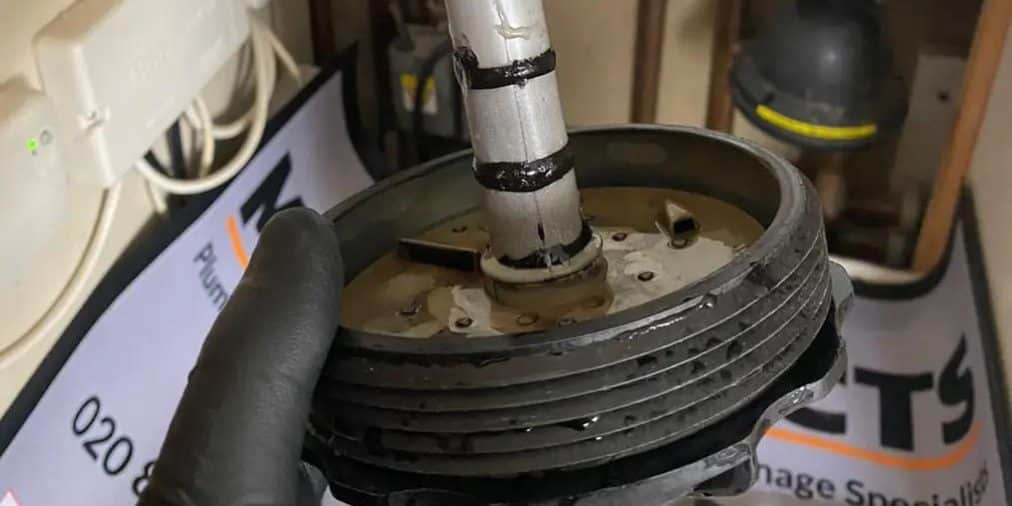Boiler kettling is a common yet often misunderstood issue that can disrupt the comfort of any home. Imagine sitting down to enjoy a quiet evening, only to be startled by a loud, unsettling noise emanating from your heating system. This noise, reminiscent of a boiling kettle, is more than just an annoyance—it’s a sign that your boiler is in distress. Read on if you are keen to understand the causes, implications, and solutions for boiler kettling, helping you understand how to maintain a quieter, more efficient heating system and ensuring your home remains warm and peaceful.
What Is Boiler Kettling?
A boiler “kettles” when its heat exchanger becomes blocked, causing the system to overheat and the water inside to heat up, much like a kettle. This boiling water creates steam, which traps air in the system and increases pressure levels.
While modern boilers can experience kettling, it is particularly common in older models. Modern boilers often come with built-in shutdown mechanisms that prevent kettling by cutting off the boiler at the first sign of trouble. In contrast, older boilers lack this technology and are more prone to kettling.
You’ll recognise a kettling boiler by the unusual noises it makes—hissing or popping sounds due to the heat exchanger becoming a lot hotter than it should. This overheating is typically caused by debris, iron oxide deposits, or limescale build-up. The trapped air in the system expands more than water when heated, leading to miniature explosions inside the heat exchanger. These noises and inefficiencies are clear indicators that the boiler is not working as it should.
Is It Safe To Use A Boiler That Is
Kettling?
Kettling should not be ignored. Continuing to use a boiler that is kettling can lead to further damage, including the risk of a breakdown or, in severe cases, a dangerous pressure build-up. This can cause burst internal pipework, steam emission, and electrical hazards, all of which can be potentially very harmful to anyone in the household.
Modern boilers are equipped with built-in shutdown mechanisms that activate when overheating is detected, preventing the boiler from reaching the kettling stage. However, if your boiler is already kettling, it is crucial to have it inspected and repaired by a qualified heating engineer as soon as possible. They can diagnose the problem and implement the necessary repairs to ensure your boiler operates safely and efficiently. In the meantime, limit the use of the boiler to prevent exacerbating the issue.
What Are the Causes of Boiler
Kettling?
Boiler kettling is often the result of inadequate maintenance and cleaning of the heating system. The main causes include:
- Limescale build-up: This is the primary culprit, especially in homes located in hard water areas. Limescale can accumulate inside the pipework and around the heat exchanger, restricting water flow and making it more turbulent. This build-up can also damage other components, such as the pump, which may struggle to push water through the heat exchanger efficiently.
- Iron oxide deposits: Iron oxide, or rust, can flake off the inside of radiators and form sludge. This sludge can block the flow of water, contributing to kettling.
- Faulty thermostat: A damaged or incorrectly set thermostat can cause the boiler to overheat by sending inaccurate temperature readings.
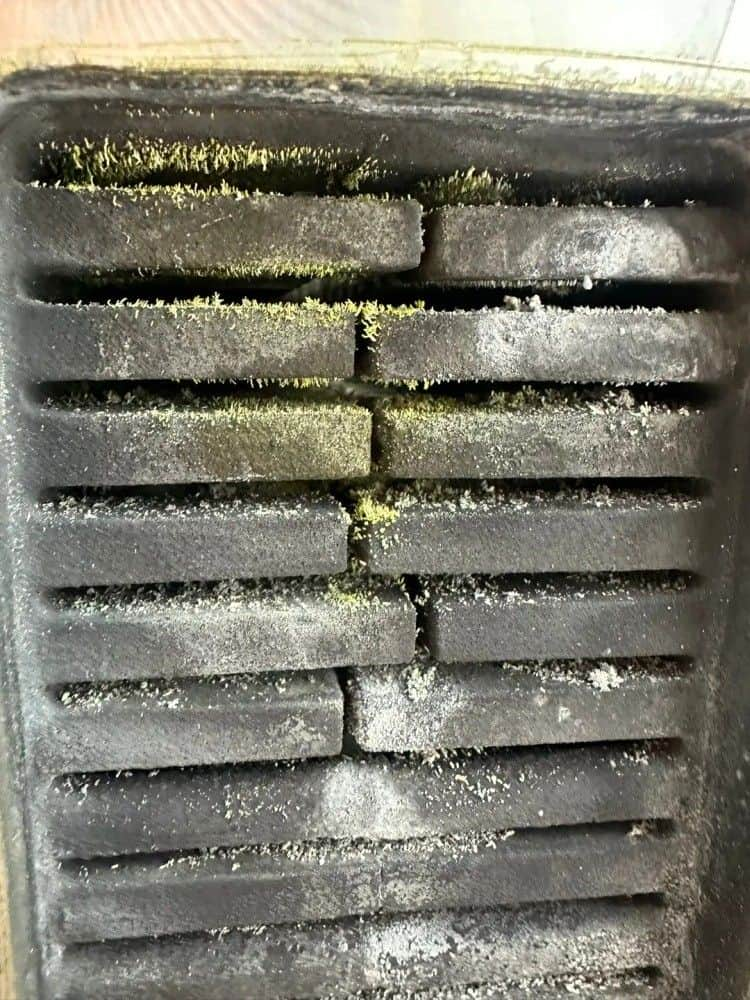
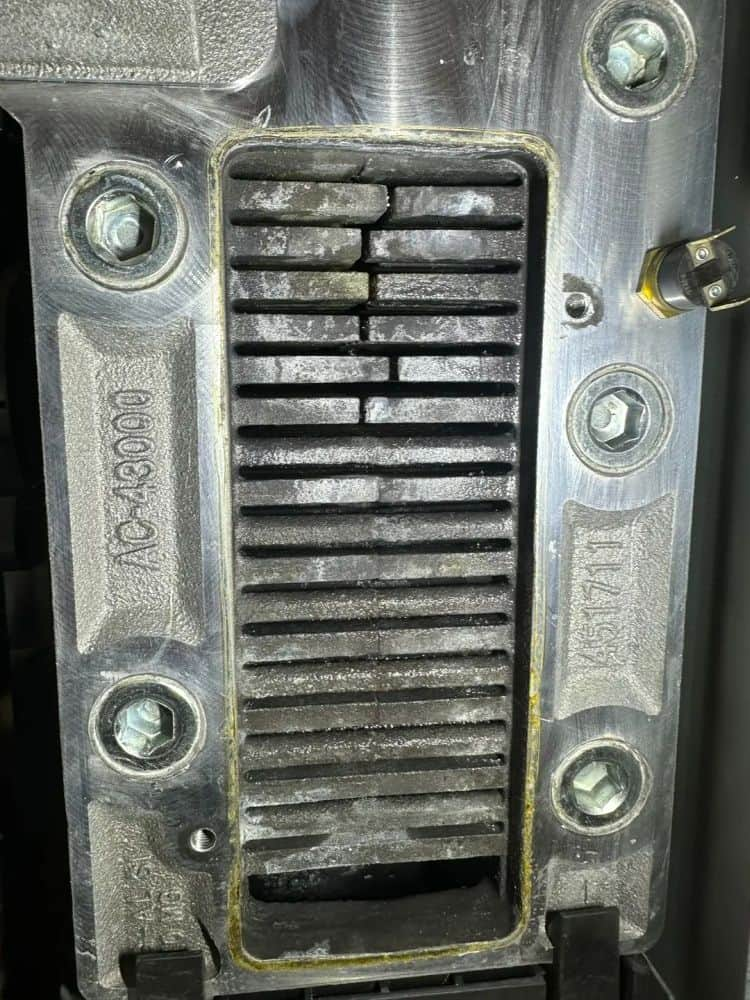
Symptoms Of Boiler Kettling
The most noticeable symptom of boiler kettling is the noise. When a boiler overheats the water to the point of boiling, it creates steam. The resulting noise, which can include hissing and popping sounds, is caused by the steam moving around, and gas bubbles forming and bursting within the system.
In addition to unusual noises, other symptoms of boiler kettling include:
- Fluctuating hot water temperature: You might notice that your hot water supply is inconsistent, with temperatures fluctuating between hot and cold unexpectedly. This can be due to the irregular heating caused by kettling. You may even notice cold spots on your radiators.
- Reduced heating efficiency: The boiler may struggle to heat your home as effectively as before. Rooms may take longer to warm up, or some radiators may remain cool even when the heating is on.
- Increased energy bills: When a boiler overheats, it reaches the set temperature too quickly and shuts down before the heating system can fully warm up. This causes the boiler to cycle on and off frequently. As a result, the boiler consumes significantly more gas and needs to run for a much longer period to bring the property up to the desired temperature, leading to a considerable waste of energy. Due to the boiler working harder to maintain the desired temperature, you may see an increase in your energy bills.
- Frequent boiler shutdowns: Modern boilers have safety mechanisms that shut down the system when overheating is detected. If your boiler is shutting down frequently, it could be a sign of kettling.
- Visible steam or water leaks: In severe cases, you might notice steam or water leaking from the boiler or nearby pipes. This can be a sign of excessive pressure build-up caused by kettling.
- Unpleasant smells: Overheating can sometimes cause strange smells, which might indicate that there is a problem with the boiler’s internal components.
If you observe any of these symptoms in addition to the characteristic noises of kettling, it’s essential to have your boiler inspected and repaired by a qualified heating engineer promptly.
Kettling Prevention
A professional heating engineer will likely do one of the following preventative measures to avoid full on boiler kettling taking place:
1
Clean or replace the heat exchanger.
As mentioned earlier, limescale build-up around the heat exchanger can significantly restrict water flow. This causes water to linger in the heat exchanger longer than it should, leading to overheating. Removing the heat exchanger and thoroughly cleaning it can often resolve the issue, but in some cases, it may be necessary to replace the heat exchanger entirely.
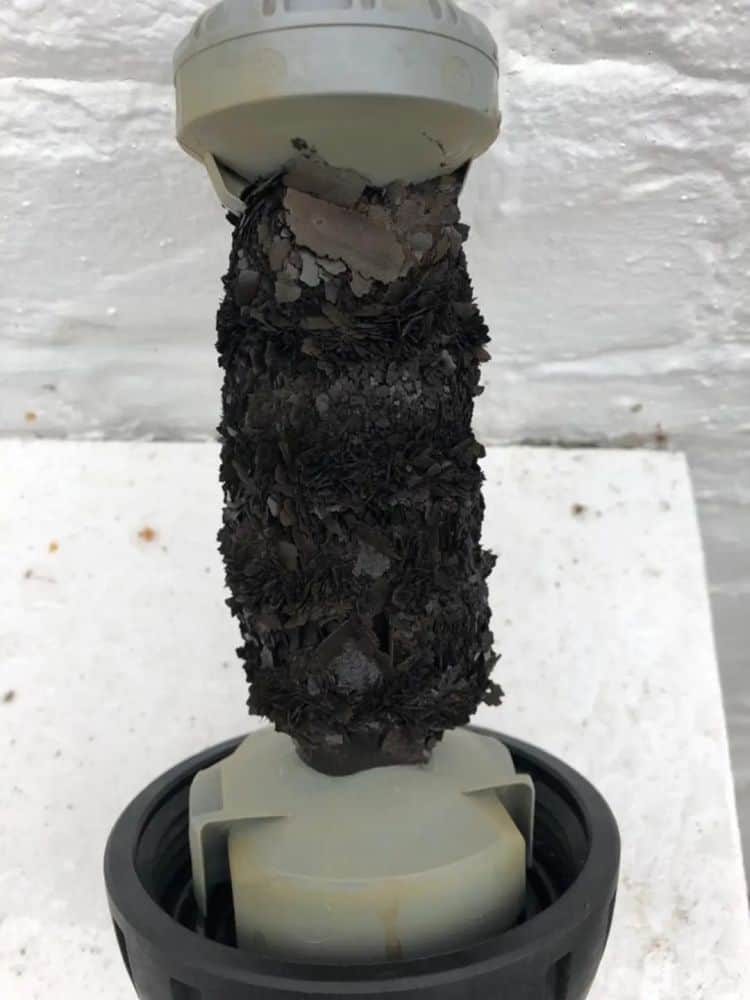
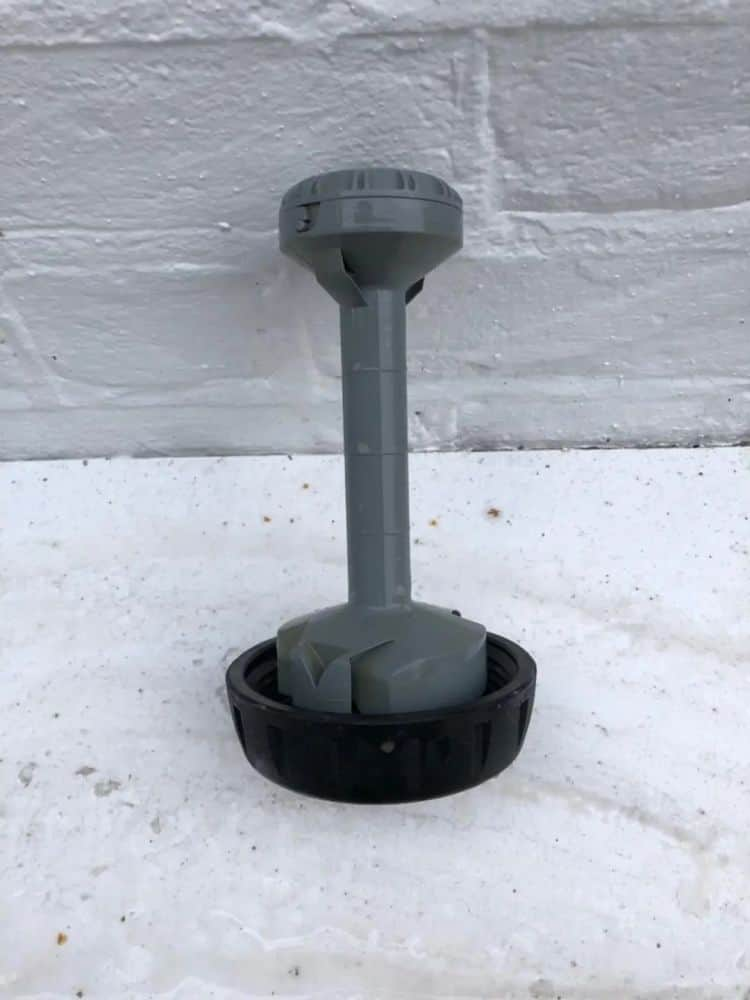
2
Chemical powerflushing.
Chemical powerflushing is a cleaning process used to remove sludge, rust, limescale, and other debris from heating systems, including boilers, radiators, and pipework. It involves the use of high-velocity water combined with a powerful corrosion inhibitor (chemical compound) to thoroughly cleanse the system. Performing a chemical powerflush effectively removes limescale and sludge, restoring proper water flow. This prevents water from lingering and overheating in the heat exchanger. This method not only clears out existing build-up but also helps to prevent future accumulation of deposits that can impair the system’s efficiency and lead to problems such as boiler kettling.
What does the corrosion inhibitor do? Corrosion can occur when metal parts, like the heat exchanger, radiators, and pipework, come into contact with water and oxygen, leading to rust and other forms of deterioration.
By introducing a corrosion inhibitor into the system, you create a protective layer on the internal surfaces of the metal components. This layer reduces the chemical reactions that cause corrosion, thereby extending the lifespan of the boiler and other parts, improving efficiency, and reducing the likelihood of leaks and blockages caused by rust and sludge.
In a boiler system, using a corrosion inhibitor helps maintain optimal performance, reduces maintenance costs, and enhances the overall reliability of the heating system.
A qualified heating engineer can recommend the best course of action for powerflushing. In some cases, properties with very old pipework may not be suitable for powerflushing and might benefit more from a manual flush. For more information on powerflushing a heating system, click here.
3
Annual boiler servicing.
An annual boiler service is highly recommended to ensure your boiler operates efficiently and to flag any potential issues before they become major problems. During the service, an engineer will thoroughly inspect and test the entire heating system, ensuring it functions optimally. This includes adding necessary components like a top-up of corrosion inhibitor to maintain system health and efficiency.
4
Install a filter.
Installing a filter on the return pipe to the boiler helps remove impurities from the central heating system. A magnetic filter is especially effective at trapping iron-based magnetite, ensuring cleaner water circulation and improved boiler efficiency.
In conclusion, boiler kettling is a preventable issue primarily caused by poor maintenance of the heating system. Regular servicing, proper cleaning, and installing protective measures like filters and powerflushing can significantly reduce the risk of kettling and extend the life of your boiler. Remember, the most common cause of boiler failure is neglecting maintenance. By staying proactive and attentive to your heating system’s needs, you can ensure a reliable, efficient, and quiet boiler that keeps your home comfortable all year round.
If you are due a boiler service, why not book one today? Believe it or not there are lots of benefits of booking a boiler service in the summer or spring, so don’t let the fact your boiler might be currently switched off deter you from giving us a call.

